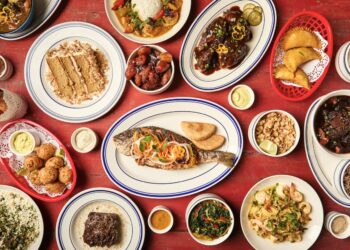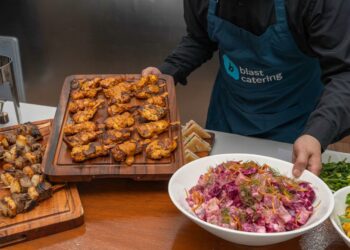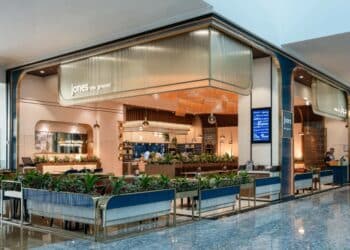Al Masah Capital Ltd, a regional investment firm, suggests that the food services sector continues to expand rapidly on the back of flourishing economy, favourable demographics and steady rise in per capita income.
The investment firm had valued the GCC foodservice market at USD 18.8 billion in 2014 and has predicted a growth rate at CAGR of 6.8% to reach USD 24.5 billion in 2018.
Saudi Arabia led the region, with total foodservice sales of USD 8.9 billion, accounting for nearly half of the GCC market. The UAE was the second largest contributor, with total sales of USD 5.3 billion generating 28% share in the region, followed by Kuwait (USD 1.9 billion), Qatar (USD 1.3 billion), Oman (USD 1.1 billion) and Bahrain (USD 0.4 billion).
Within the food services sector, fast food segment or Quick Service Restaurants (QSR) has emerged as the largest, accounting for 58.2% (USD 10.9 billion) of the GCC food services market in 2014, followed by Full Service Restaurant (FSR) at 31.5% (USD 5.9 billion) and Café & Bakery segment at 10.3% (USD 1.9 billion).
The Full Service Restaurant market (which includes fine and casual dining) is estimated at around USD 5.9 billion in 2014, nearly half of the QSR market. While the concept of fine dining is still confined to affluent class and has not grown drastically in the last few years, the casual dining segment observed growth with the entry of new brands almost every year. Whereas, chained and specialist coffee shops are growing in popularity. In 2014, the Café & Bakery segment registered an annual billing of USD 1.9 billion, exhibiting strong growth during 2012-14, growing at CAGR of  Speaking about the market research, Shailesh Dash, CEO Al Masah Capital said; “Rising population is one of the key drivers of food consumption. The rising flow of tourists to GCC has helped drive demand. As most major foodservices outlets are concentrated in the Tier I and II cities of the GCC countries, the rapid growth in urbanized population is expected to act as a stimulus to the growth in the food service sector. Additionally we have annual food festivals, exhibitions and shopping festivals held in the region that provide a boost for growth. However, given the high dependence on imports, securing a steady supply of food remains a key challenge for the GCC governments. Several steps undertaken by regional governments to improve the food supply are still at a nascent stage and are likely to improve the situation in the long term.”
Speaking about the market research, Shailesh Dash, CEO Al Masah Capital said; “Rising population is one of the key drivers of food consumption. The rising flow of tourists to GCC has helped drive demand. As most major foodservices outlets are concentrated in the Tier I and II cities of the GCC countries, the rapid growth in urbanized population is expected to act as a stimulus to the growth in the food service sector. Additionally we have annual food festivals, exhibitions and shopping festivals held in the region that provide a boost for growth. However, given the high dependence on imports, securing a steady supply of food remains a key challenge for the GCC governments. Several steps undertaken by regional governments to improve the food supply are still at a nascent stage and are likely to improve the situation in the long term.”
Al Masah also reviewed factors affecting accelerated growth within the sector and stated an increase in competition, weak supply chain infrastructure, high rentals in prime commercial properties and shortage of skilled human capital as major issues. Whereas key emerging trends observed were changing consumer palates, influx of global F&B brands and growing demand for takeaway by way of mobile applications and online ordering. Investments and acquisitions were also indicative of a robust growth structure for this industry.


































































